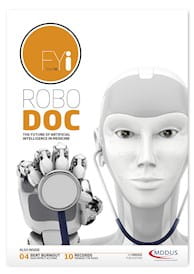WHETHER it’s playing a vital role in stroke care, treating infectious diseases such as meningitis or managing long-term conditions like epilepsy and multiple sclerosis, the specialty of neurology is varied and challenging.
Neurologists diagnose, treat and manage disorders that affect the brain and nervous system. They also treat peripheral nerve diseases which may result in weakness or sensory impairment.
Diagnosis is commonly done by clinical assessment alone but there are a range of advanced imaging and other tests available including genetic testing.
One of the most challenging areas for hospital doctors is the treatment of patients presenting with acute neurological conditions (these include stroke, meningitis, encephalitis and Guillain-Barré syndrome). These patients are then followed up either to clarify the diagnosis or to manage longer term problems such as epilepsy, multiple sclerosis and Parkinson’s disease.
Neurological conditions account for as many as 20 per cent of acute medical admissions but the Association of British Neurologists (ABN) identified a “significant variation of provision of service across the UK”. Figures from a recent ABN survey found that a fifth of acute hospitals have access to a neurologist on three days or fewer per week. Access to diagnostic investigations was similarly inconsistent. While 89 per cent of neuroscience centres have access to 24/7 MRI, 72 per cent of district general hospitals (DGHs) do not.
The ABN is calling for national variations in care to be addressed urgently – so what better time to consider a career in this growing field? Entry and training Upon successful completion of the foundation programme, it generally takes seven to eight years of full-time training to become a neurologist. This comprises either two years core training or three years on the acute care common stem (ACCS) programme followed by five years specialty training (ST3-7). Sub-specialty training in stroke medicine adds a further 12 months.
Trainees must acquire full membership of the Royal College of Physicians UK (MRCP) before entry to ST3. During ST3-7 they must also pass the specialty certificate examination – developed by the Federation of Royal Colleges of the UK in association with the ABN – in order to achieve a certificate of completion of training (CCT).
All trainees will undertake clinical placements of between three and 12 months in a minimum of two neurological training sites. At least one site must include the allied specialties of neurosurgery, neuroradiology, neurophysiology, neuropsychology and neuropathology. At least 12 months should be spent in a DGH-type setting. There is also the option for relevant out-of-programme experience (OOPE) which may include time spent in research or experience in other deaneries or overseas – this can be discussed with your educational supervisor and specialty training committee.
The job
Most neurology services still work on a hub-and-spoke model, with consultants spending part of their time in a DGH and part in a teaching hospital with a tertiary neuroscience centre. Community-based neurology is rare but there are efforts to improve this in coming years. Multidisciplinary work plays a key role with neurologists working closely with other healthcare professionals including physiotherapists, occupational therapists and speech and language therapists.
Many neurologists choose to sub-specialise in areas such as movement disorders, dementia, stroke, MS and other neuroinflammatory disorders, epilepsy, headache, muscle disorders, peripheral nerve disorders, neuro-ophthalmology or neurorehabilitation.
The ABN offers an overview of the kind of patients neurologists see. The most common problems encountered in new patients in clinic, it says, are headache, weakness, tingling and dizziness. There are also a variety of rare diseases that can present a challenge to the diagnostic skills of even very experienced neurologists. This means that not all neurologists need to be alike. As the ABN says: “The skill mix for an academic neurologist working in motor neurone disease might be very different from that for a stroke neurologist running a hyperacute stroke unit,” adding: “But if your strengths include logical reasoning in the face of complex information, communication skills in difficult situations and psychological-mindedness then neurology might be the career for you.”
Sources
- NHS careers - neurology
- GMC neurology curriculum
- Association of British Neurologists: www.theabn.org
 Q&A
Dr Michael Flower,
clinical research fellow
and neurology registrar,
UCL Institute of Neurology
Q&A
Dr Michael Flower,
clinical research fellow
and neurology registrar,
UCL Institute of Neurology
What first attracted you to neurology?
At school, whilst we understood precisely how the heart, lungs and guts work, I found the mysterious black box of the brain fascinating and exciting.
What do you enjoy most about the job?
Every day I learn something new about how the nervous system works. You’d have thought that by now I’d have a fairly good understanding of how it goes wrong and how to fix it, but every day I see that we’re still a specialty in its infancy.
What do you find most challenging?
Routinely, each day, I encounter situations where a mistake can have huge implications – maybe the patient would end up disabled, maybe worse. In other walks of life, maybe in other specialties, that happens occasionally, but working on the ward it’s several times a day. And because we have to work fast, we’re always exposed to this kind of risk.
Has anything surprised you about the specialty?
Neurology is a big paradox. In one way it’s cutting edge, fast paced and highly academic, always pushing forward the limits of our understanding. On the other hand the clinical skills we use every day, and that are still at least as important, maybe more so than all the tests we can do, are rooted in hundreds of years of experience. A good neurologist learns from the past and the future.
What do you consider the most important attributes of a good neurologist?
Logical thinking in the face of a huge amount of clinical information. Seeing the wood for the trees.
What are the most common misconceptions about your specialty?
Neurology is more straightforward than people think. It can seem daunting at medical school, and maybe worse in foundation training, but you learn that with a clear understanding of basic neuroanatomy, a good history and a structured examination it makes much more sense.
Describe a typical working week.
Currently I’m doing a PhD in genetics and cell biology, so a lot of pipette work, cell culture and data crunching. However, on the wards my time is split between seeing referrals on the wards and in the emergency department (ED), going to general or specialist neurology clinics and learning from colleagues at departmental teaching.
What are the tools that you can’t live without in your day-to-day work?
Communication skills and a logical mind. And maybe a tendon hammer.
Is there any advice you could give to a final year or FY trainee considering neurology?
Try securing a rotation or taster session with a neurology department to make sure it’s for you. Maybe a quality improvement project to find out more about what we do. You don’t have to be the most academic trainee – a logical mind, enthusiasm for the specialty and good communication skills are the most important attributes.
This page was correct at the time of publication. Any guidance is intended as general guidance for members only. If you are a member and need specific advice relating to your own circumstances, please contact one of our advisers.
Read more from this issue of FYi

Save this article
Save this article to a list of favourite articles which members can access in their account.
Save to library
